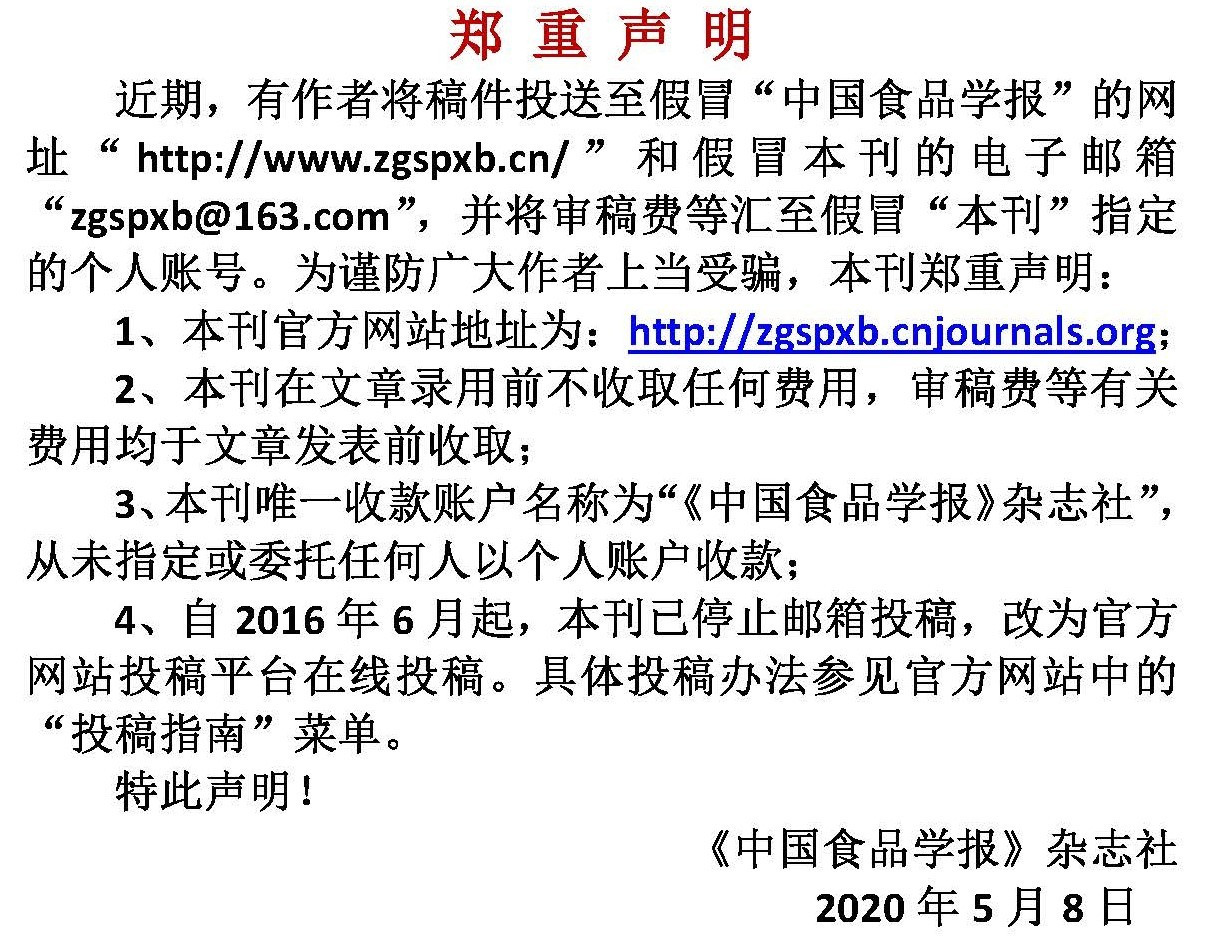Progress on Protein Oxidation in Meat and Meat Products during Frozen Storage
Author:
Affiliation:
Fund Project:
引用本文
郑尧;邱泽慧;王锡昌.冻藏肉及其制品中蛋白氧化的研究进展[J].中国食品学报,2021,21(6):331-341
复制分享
文章指标
- 点击次数:
- 下载次数:
- HTML阅读次数:
历史
- 收稿日期:
- 最后修改日期:
- 录用日期:
- 在线发布日期: 2021-07-16
- 出版日期:
版权所有 :《中国食品学报》杂志社 京ICP备09084417号-4
地址 :北京市海淀区阜成路北三街8号9层 邮政编码 :100048
电话 :010-65223596 65265375 电子邮箱 :chinaspxb@vip.163.com
技术支持:北京勤云科技发展有限公司
地址 :北京市海淀区阜成路北三街8号9层 邮政编码 :100048
电话 :010-65223596 65265375 电子邮箱 :chinaspxb@vip.163.com
技术支持:北京勤云科技发展有限公司
